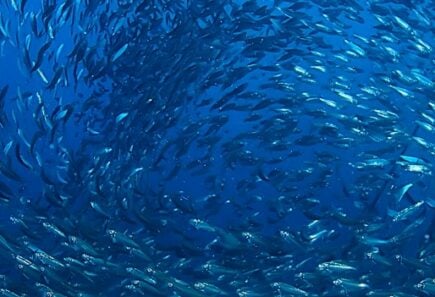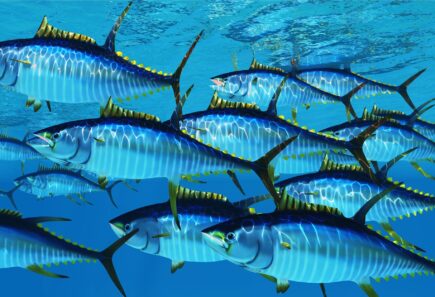
Our ocean is threatened. Alternative seafood is one solution.
Jen LamyLearn how GFI and partners are scaling the science that we need around plant-based, cultivated, and fermentation-derived seafood to improve our oceans' health.

Learn how GFI and partners are scaling the science that we need around plant-based, cultivated, and fermentation-derived seafood to improve our oceans' health.
The manufacturing capacity for rapid and cost-effective scale-up of alternative protein production is a current constraint on the growth of the industry. Repurposing and retrofitting stranded or underutilized assets such as shuttered bioethanol plants can help mitigate some of the financial hurdles and shorten the amount of time required for companies to expand production.

In this Business of Alt Protein seminar, you’ll hear from Maureen McCusker, Co-Founder/CEO of Blackhawke Behavioral Science. Dr. McCusker brings her deep expertise in assembling powerful teams that propel startups and early-stage companies to success. From choosing a co-founder to crafting and filling critical roles, Dr. McCusker will cover the team fundamentals that are essential for launching and scaling.

In this Business of Alt Protein seminar, you’ll hear from Maureen McCusker, Co-Founder/CEO of Blackhawke Behavioral Science. Dr. McCusker brings her deep expertise in assembling powerful teams that propel startups and early-stage companies to success. From choosing a co-founder to crafting and filling critical roles, Dr. McCusker will cover the team fundamentals that are essential for launching and scaling.

Interested in a quantitative approach to prioritizing seafood species archetypes for alternative seafood development? Learn how to use the ArcheType Library for Alternative Seafood (ATLAS) to compare seafood species across a number of metrics.

Interested in a quantitative approach to prioritizing seafood species archetypes for alternative seafood development? Learn how to use the ArcheType Library for Alternative Seafood (ATLAS) to compare seafood species across a number of metrics.

Are you interested in working in alternative protein? Join SciTech university innovation specialist, Christina Aguila, to learn more about what it takes to pursue an academic or industry career in this rapidly growing field.

Learn the fundamentals of selling your product into a retail channel, from communicating about your product to preparing for your first category review. You'll walk away equipped with the information you need to engage with retailers confidently and effectively.

The Smart Protein Summit is your chance to hear from thought leaders, industry titans, pioneering scientists, and avant-garde entrepreneurs - from India and beyond. Designed to facilitate action, learning, and networking, your world-changing smart protein plans could come to life through the Smart Protein Summit 2021.

Plant-based and cultivated meat cut emissions by up to 92%. In order to meet the Paris Agreement, we must change how meat is made.